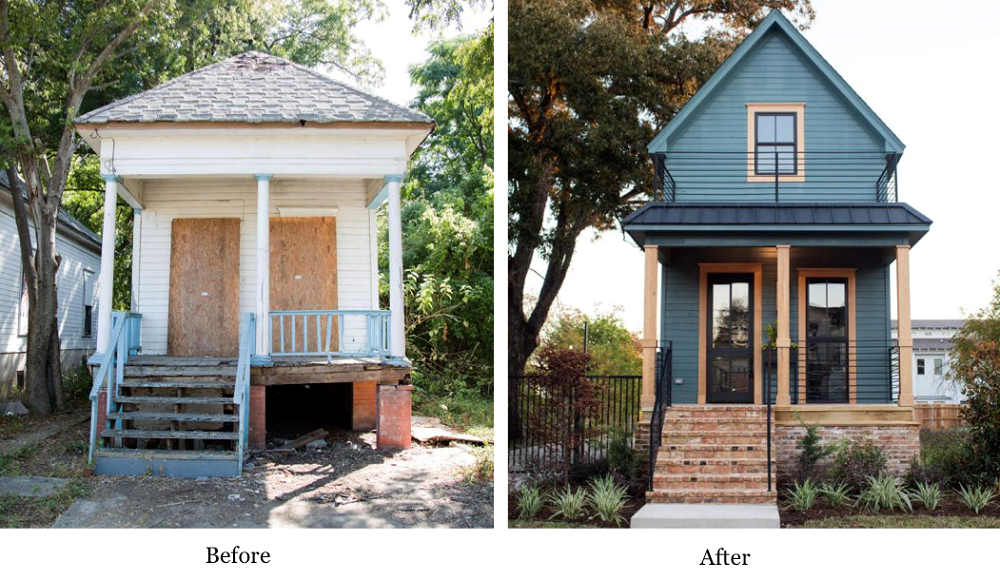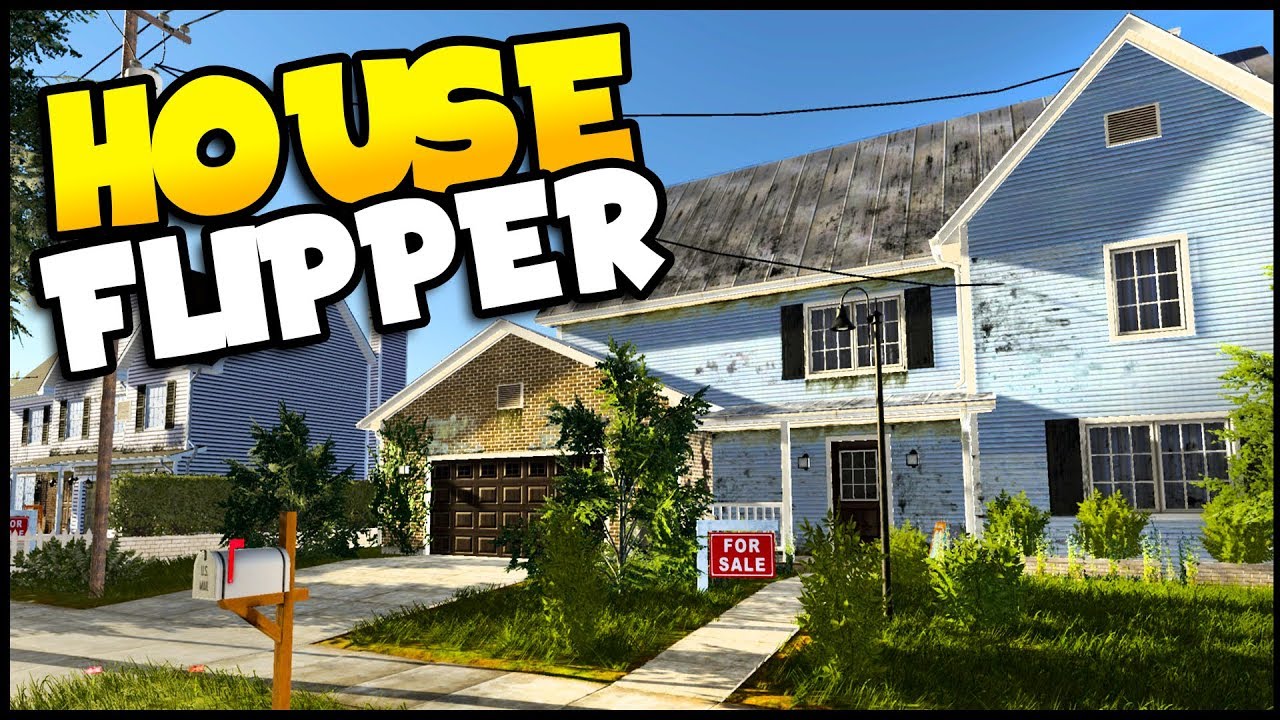When you've got to buy a house from across the country, start with a winning strategySearching for a house locally is not without its difficulties. Add hundreds or even thousands of miles to the equation, and it becomes infinitely more complicated. Though long-distance house hunting has its unique challenges, it’s not impossible. In fact, with the right agent and the convenience of modern technology, it’s never been easier to buy a house remotely. Here are a few critical factors to keep in mind when you find yourself in a home search from afar. Do your homework When it comes to long-distance home shopping, “the Internet is your friend,” remarks Meghann Shike of Synergy Realty in Nashville. “You know the neighborhoods you live around, but you know nothing about your new one. You don’t know where the mall is, the [grocery store], or the schools.” Though nothing can substitute checking out the neighborhood in person, Shike recommends looking up commute times to work, crime rates in the area, and, most importantly, how the schools rank. Even if you don’t have children or don’t plan to have children, it’s still good to know the quality of the schools for resale purposes. One of the biggest pieces of the long-distance house-hunting puzzle, however, is to make sure you’re researching who the best local real estate agents are. It’s always crucial to hire an agent you trust, but with a long-distance search the agent can make or break the experience. “You’re going to want someone local on the ground — someone who is very familiar with the city, neighborhood, and prices,” Shike says. “You need to get a feel for how that person operates. Are they available to talk to you? You’re going to have more questions than you realize, and your agent is going to need to be there to answer them.” Have a travel budget When Kyle and Samantha Steele found out they were going to be moving from Oklahoma City to Columbus, OH for Kyle’s new job, the couple looked at listings online, got in touch with real estate agents, and picked an upcoming weekend to house hunt in person. The Steeles’ agent showed them multiple houses, but nothing was quite right. Then they found out that many of the older neighborhoods in the area didn’t have great access to high-speed Internet. That’s when they decided to build. Their agent was instrumental in guiding them on their short house-hunting weekend, and in finding a builder. “[Our agent] basically helped us with everything, every step of the way,” Kyle states. “When we couldn’t find anything, she helped us find model homes in the area we’re building in, and showed us three different model homes. She answered questions, and helped us find the building company. She even helped us find a hotel for the weekend.” Inevitably, unexpected appointments came up during the building process that required one of the Steeles to be present. “We had to make an appointment to meet with the design studio to pick out the floors and the carpet,” Samantha remarks. “So far, I’ve been to Ohio twice.” The couple advises long-distance house hunters to prepare and plan ahead, especially for last-minute travel. “Be flexible,” Kyle says. “Make sure you have a few thousand dollars in reserve that you can spend on plane tickets and a hotel — because you will have to go back and forth.” From the agent perspective, Shike recommends planning a house-hunting trip that’s at least four to five days long, so you’re not cramming in tons of showings that you won’t remember at the end of the day. Know what you want When you’re in the market for a home, you should always have a running list of features you want, but it’s especially crucial when you’re buying from a distance. “I like to tell my clients to do a ‘top five.'” Shike says. “What’s your non-negotiable? Is it being able to step out the front door to walk your dogs? Do you want to walk your kids to school?” Knowing exactly what you want out of a house and location allows your agent to help you narrow down neighborhoods and homes more easily, and assist you in making an offer quickly, which is especially important in a fast-moving market. “Buyers need to get over the fear of writing an offer when they haven’t seen the house in person,” remarks Shike. “I can video chat our way through the house, but I can’t get you on a plane [to get here] in the same time the local people can who are shopping.” Overcome remote home-buyer jitters For those buyers who are nervous about making an offer sight unseen, Shike says there is the possibility of adding a clause in the contract that the sale is contingent on the buyer seeing it. Of course, there is also always the option of renting first before you take the plunge. “You could rent for the short term or get a six-month lease, which is enough time to get settled in your job or routine,” recommends Shike. “That can be nice for buyers who are a little more anxious about the process — to relieve that anxiety.” Overall, buying a house from a distance shouldn’t necessarily be looked at as a negative experience. In fact, Shike believes it can give many shoppers new opportunities, and buyers are often more excited when purchasing long distance. “It can be a nice change of pace for people,” Shike adds. “Another benefit to moving long distance is a fresh start: a new neighborhood, new culture, new people, and new experiences everywhere.” On Point Homevestments
0 Comments
What if your dream home just happens to have ancient wiring and a cracked foundation?So you’ve set your sights on a home that, to put it mildly, needs a little repair work. The stairs are creaky, and you’ve noticed a leak (or three). Still, your mind is made up. What’s a love-struck home buyer to do? If your heart is set on a fixer-upper, this advice from real estate experts can help you make that “needs-work” house a home. Check the zoning “Any municipality has zoning districts, and you need to know what uses are permitted,” says George Vanderploeg, a luxury real estate broker with Douglas Elliman in New York. Knowing the zone is important because it will tell you what you can and cannot do to the home. For instance, when interiors photographer Josh Gibson decided to renovate his 19th-century cottage in Beaufort, SC, he had to contend with the historic district landmarks commission, which required hours of research and visits downtown. Among the many requirements he had to adhere to were installing single-pane windows and maintaining the home’s unique brick-pier structure. To research your prospective home’s zoning requirements, you can visit its municipality’s website, or arrange to meet with a staff member, who can walk you through the legalities. Bring in a home inspector Once you’ve made a verbal agreement to buy the house and are waiting for the contract to be drawn up, you’ll want to hire a home inspector. A home inspector will look for structural issues and advise you on things that may or may not need to be replaced, such as plumbing, electricity, and roofing. Your broker can refer you to an inspector, but it’s important that this person not be biased, as you’ll need an objective opinion. With this in mind, Vanderploeg advises finding someone who will work for you — not for the broker or seller. Be sure to set aside about an hour or two to walk through the building with the inspector and ask questions. “This allows the buyer to get to know the house really well before they buy it,” Vanderploeg says. Home buyers tend to ask questions about asbestos and termites, but Hal Einhorn, the principal inspection consultant for Old House Inspection in New York, says it’s equally important to ask about the “general age of certain systems,” as those will indicate when they’re nearing replacement. A 26-year-old boiler, for instance, is likely to go kaput soon, whereas a newly-installed air conditioning unit probably won’t be a problem for the next 20 years. Depending on the home’s location, you may also want to ask about issues specific to its region, Einhorn says. In New York City, for instance, where the water mains tend to be dated, you’ll want to clarify that the one in your coveted home isn’t made out of lead. And with today’s families using more electricity than ever, you’ll need to find out if the amount of power coming to the house is suitable, or needs an upgrade. Doing a little research online can be helpful. Another important topic to bring up is any work you’re preparing to do, like upgrading the bathroom or turning a one-bedroom home into a two-bedroom, Einhorn says. Find out the agency requirements, and if the home is in a landmarked district, make sure you know the ramifications. Will your project require filing documents, and if so, what is the process? Hire an architect and/or contractor Hiring an architect is important because you’ll want their take on what you can do from a design perspective, says Vanderploeg. The architect will also be able to point out the home’s load-bearing walls, which will determine whether they can be moved around or not, says Scott Oyler, a broker with Coldwell Banker in Cincinnati. When hiring a contractor, be sure to do your homework so you find someone you can trust. “I’ve heard of horror stories where contractors left in the middle of the job and never came back,” Oyler says — so make sure your crew has good references. Also be sure to recruit more than one, he adds, as you can never have too many opinions. Research tax incentives Depending on where you live, you may eligible for a tax abatement, a tax credit for homeowners who improve their property’s value, Oyler says. Philadelphia offers one; Cincinnati does, too. Check to see what’s available in your area. If you decide to buy and improve a fixer-upper, have patience. Once the sawdust clears, you may just find the home of your dreams. On Point HomevestmentsSave some room in your budget for expenses after move-inBy the time you get the keys to your new construction home, you might feel stretched thin in the finance department. From earnest money and design center upgrades, to closing costs and moving expenses, buying a brand-new home is never cheap. As you take a look at the costs on the horizon, it’s wise to look a little past your closing date. There are a few post-closing costs that are unique to brand-new homes and some that are familiar to all new homeowners. Set aside a little money for these expenses now, and it’ll be smooth sailing once the “sold” sign is out front. Appliances Unless you’ve negotiated a washer and dryer into the price of the home with your builder, your new laundry room will likely be a big empty space when you move in — no washer and dryer to be found. Many builders don’t include a refrigerator either, opting instead to let homeowners choose a style that suits their needs. Here’s a tip to ease your wallet woes: Start shopping appliance sales once you know your approximate close date. Many appliance stores will let you purchase ahead of time to take advantage of a good price, then delay your delivery until you move in. Utilities If you’re upgrading to a larger home, your utilities will likely increase, especially heating and cooling. And if you’re moving to a new city or a location with a different utility company, you may have to pay a deposit to start service. If you’re interested in services like cable, satellite TV, or Internet, you may have to install some equipment that would already be installed if you were buying a pre-owned home. Window coverings Look at all those big, beautiful windows in your new home! And then notice that they’re bare — no blinds or curtains in sight. Most new homes do not come with window coverings, and they’re definitely something you’ll want to quickly look into when you move in. There are better ways to introduce yourselves to the neighborhood than through wide-open windows — or bed sheets pinned up for privacy. Furniture There’s nothing more exciting than picking up some great new furnishings and decor for a brand-new space. You may have pieces that worked well in your old space but don’t fit your new home’s layout. Or maybe you have a new guestroom to furnish, a deck that is begging for patio furniture, or beautiful hardwood floors that need area rugs. Set aside some money now so you can start decorating right after move-in day. Landscaping Did you know that some builders only landscape the front yard, leaving the backyard unfinished and unfenced? And, if your new neighborhood has a homeowner’s association, the rules may require you to finish your yard within a certain time period. That means you foot the bill for landscaping your new home’s yard, and whether you do it yourself or hire a professional, it’s still an expense you shouldn’t overlook. Setting foot in your brand-new, just-finished home is an exhilarating experience, and something you won’t soon forget. With just a little planning and saving in advance, you can spend more time making your new house a home, and less time stressing over how you’re going to pay for it all. On Point HomevestmentsThought that all-white kitchen was timeless? Think again.Home design trends come and go — and this year, one look that’s on its way out could actually cause your home to sell for less. Here’s a look at five design trends you’ll be seeing more of in 2018, and three it’s time to kiss goodbye (especially if one of your New Year’s resolutions is to sell your home). Trending in 2018 Floral prints Interior design experts predict floral prints in bold, contrasting colors will make a big comeback in this year, particularly on large billowing fabrics, like drapery, as well as chairs and throw pillows. Statement floors Forget statement walls — this year will be about statement floors. From bold colored geometric tiles to soft herringbone-style hardwoods, expect to see fab floors everywhere, especially in bathrooms and laundry rooms. They’re a great way to make a small room pop, without adding clutter. Light wood cabinets Homeowners are gravitating toward medium and light wood cabinets, particularly with flat fronts and clean lines. The warmth, texture and natural element wood cabinets add help make the space feel more inviting. Warm neutrals From warm reds to caramel browns to soft beige, moodier color palettes, both on walls and in artwork, will be popular. Matte metal hardware What kind of drawer pulls and light fixtures do you want with those wood cabinets? Matte metal! Homeowners are moving away from shiny silver- or gold-accented kitchen hardware — they can make the space feel cold. 2017 fads to forget All-white kitchens This look has been popular for a while, but it’s on the way out, according to the Home Trend Forecast. Expect to see more color in kitchens next year, especially if the homeowner is planning to sell. Data shows homes with blue kitchens sell for $1,800 more than homes with white kitchens. Adding color and texture in the kitchen can help make the space feel more inviting. “While homes with all-white kitchens can be beautiful in photos, they are hard to keep clean and they may sell for less money,” says home design expert Kerrie Kelly. You’ll see designers and bloggers painting their kitchen islands navy blue or deep red (maybe even purple!) or using white countertops to contrast with medium or light wood cabinets. Bar carts While perfectly staged bar carts look beautiful, most people don’t use theirs every day. Instead, the carts take up space and collect dust. But don’t get rid of your cart just yet! Experts predict a shift toward coffee carts, which can be equally trendy, but far more practical. Succulents Succulents are easy to care for and relatively affordable, but so many other vibrant indoor plant options are out there. Nobody’s saying to toss out your beloved Haworthia, but do consider incorporating other plant varieties into your home — perhaps a palm or hearty fiddle-leaf fig. On Point HomevestmentsTeardowns, knockdowns, bash-and-builds vs. McMansions, pop-tops, and snout homes: It’s a war out there these days, as detailed in New York Times article that would get anyone’s heart racing — even if you didn’t own a home. What’s happening is that folks are buying homes and hoping to tear them down to rebuild bigger ones or take existing homes and morph them into McMansions, of sorts. Communities where this is happening such as Laguna Beach, Calif., Nantucket, Mass., and Ocean City, N.J., are putting their foot down and getting help from the National Trust for Historic Preservation to slow down the madness. One funny anecdote in the article dealt with a real estate agent who was given the OK to build an addition to his home in Lewes, Del., but to make room, he needed to knock down a dilapidated chicken coop on the property that dated back to the 1800’s. Thinking it would be a slam-dunk to get the go-ahead in a public hearing he was met with fierce public disapproval and did not get the OK. The reason? It lent "value to the streetscape." So, whenever you drive down the street and see a dilapidated building ready to fall over, a community ordinance could be protecting its right to stand there. On Point HomevestmentsThere is a lot that goes into completing a successful fix and flip rehab deal. The process is magnified if you are just breaking into the business. You will worry and stress about everything and will often be apprehensive pulling the trigger when a new deal comes your way. Eventually you will find one that checks all the boxes and the real work begins. Instead of focusing on items that don’t do much to your bottom line there are a handful of crucial areas you should focus on. These core items will often determine your profits, and just how smooth the project is. Whether you are an experienced veteran or a first-time flipper here are five crucial areas you need to focus on.
There is always a lot to consider on every new rehab deal. Instead of pulling yourself all over the place focus on these five crucial areas. On Point Homevestments |
Details
Archives
February 2019
Categories
All
|
Company |
Services |
|
Possibilities













 RSS Feed
RSS Feed